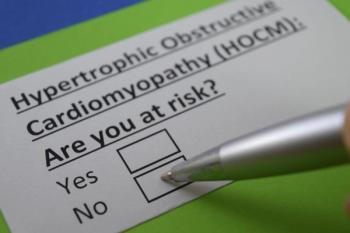
Blood-Brain Barrier Crossing Antihypertensives Linked to Less Memory Decline
Blood-brain barrier crossing medicines have shown memory benefits in elderly patients, according to a new analysis.
A report published by Hypertension, the journal of the American Heart Association, revealed the benefits of blood-brain barrier crossing drugs and their link to minimizing memory decline in the elderly population. The findings demonstrated that high blood pressure is a factor in cognitive decline in older adults.1
High blood pressure is linked to hypertension, which is a factor leading to cognitive decline in patients with dementia. Furthermore, half of American adults have high blood pressure. Studies show that hypertension appears decades before dementia; therefore, treating hypertension can have long-term positive effects on brain health later. Antihypertensive treatments are vital in prevention efforts, as there are suggested beneficial effects on cognition and neuropathology from antihypertensives. In 1 large trial (SPRINT MIND), results demonstrated a 19% reduction rate in dementia symptoms from treatment with blood pressure lowering medicines.2
The recent study published in Hypertension is the first meta-analysis to compare the potential impact over time of blood pressure lowering medicines that cross the blood-brain barrier versus those that do not. It has been suggested that renin-angiotensin system drugs that cross the blood-brain barrier can be linked to lower dementia risk compared with their nonpenetrant counterparts. There are different classes of blood pressure lowering medications such as angiotensin-converting enzyme (ACE) inhibitors, angiotensin II receptor blockers (ARBs), calcium channel blockers and diuretics. Each class acts differently, with some antihypertensive medications that penetrate the blood-brain barrier and others that do not. The current meta-analysis aimed to assess the possible cognitive advantages of blood-brain barrier crossing renin-angiotensin system drugs compared with nonpenetrant medications.
Fourteen cohorts from 6 countries were studied, including Australia, Canada, Germany, Ireland, Japan, and the United States. A total of 12,849 individuals were studied and assessed for blood-brain barrier crossing potential within antihypertensive medications used by cognitively normal participants. Seven areas were studied including attention, executive function, language, verbal memory learning, recall, mental status, and processing speed. The findings were adjusted for age, sex, and education, and meta-analyses were used. ACE inhibitors and ARBs proved to allow better memory recall than other antihypertensives.
“These findings represent the most powerful evidence to-date linking brain-penetrant ACE-inhibitors and angiotensin receptor blockers to better memory,” study coauthor Jean K. Ho, PhD, a postdoctoral fellow at the University of California, Irvine said in a press release about the results.2 “It suggests that people who are being treated for hypertension may be protected from cognitive decline if they take medications that cross the blood-brain barrier.”
Renin-angiotensin system drugs such as AT1-receptor blockers and ACE inhibitors were specifically seen as having positive effects on future cognitive function. The medicines were evaluated for their effects on several cognitive domains, including attention, language, verbal memory, learning, and recall.
“Studies of [ARBs] and [ACE] inhibitors have suggested these medicines may confer the greatest benefit to long-term cognition, while other studies have shown the benefits of calcium channel blockers and diuretics on reducing dementia risk,” study author Daniel A. Nation, PhD, an associate professor of psychological science in the Institute for Memory Impairments and Neurological Disorders at the University of California, Irvine said in the release.2
Older adults taking blood-brain barrier-crossing renin-angiotensin drugs exhibited better memory recall over up to 3 years of follow-up, relative to those taking nonpenetrant medications. Findings suggest links between blood-brain barrier crossing renin-angiotensin drugs and less memory decline.
References
1. Ho JK, Moriarty F, Manly JJ, et al. Blood-brain barrier crossing renin-angiotensin drugs and cognition in the elderly: A meta-analysis . Hypertension. 2021. doi:10.1161/hypertensionaha.121.17049
2. Some blood pressure-lowering meds linked to less memory decline in older adults. News release. American Heart Association; June 21, 2021. Accessed June 21, 2021.
Newsletter
Pharmacy practice is always changing. Stay ahead of the curve with the Drug Topics newsletter and get the latest drug information, industry trends, and patient care tips.























